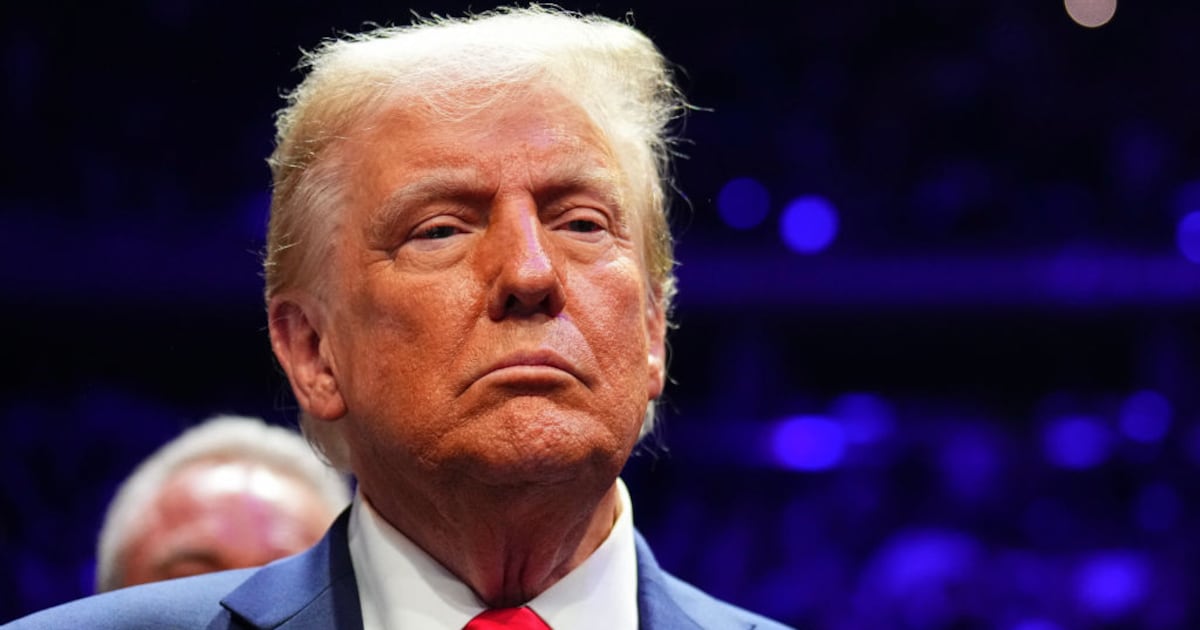Somewhere deep in the heart of Texas, George W. Bush is chuckling. During the eight years of Bush’s administration, his penchant for talking openly about his evangelical faith and his strategy of cultivating ties with conservative religious leaders led liberals to charge him with being a theocrat. They warned that Bush’s faith-based initiative would funnel billions of dollars into building theocratic institutions. Kevin Phillips wrote a bestselling book, American Theocracy, in which he argued that Bush was motivated by his biblical worldview to wage war on Iraq.
But Bush wasn’t a theocrat—he was just happy to accept the label if it helped to generate enthusiasm among his conservative religious supporters. Rick Santorum, on the other hand, is a real theocrat who does not believe in the separation of church and state. His rise from the presidential wannabe positioned out of camera range on the debate stage to potential Republican nominee has been so rapid that few people have noticed that his beliefs about religion and politics are not just run-of-the-mill conservatism. If the fear of theocracy during the Bush era was overwrought, Santorum’s candidacy has made it very real.
Allegations of Bush’s theocratic leanings were always based on speculation, reading into mostly anodyne statements for more sinister theological motivations. For instance, when Bush named Jesus as his favorite political philosopher in a 1999 debate, he wasn’t suggesting that his administration would be subject to Christian authority. He was using a debate question to connect with evangelical voters. When asked whether he thought the Iraq War was part of an apocalyptic struggle, Bush said, “I haven’t really thought of it that way ... I guess I’m more of a practical fellow.” The answer only convinced liberal critics that Bush was hiding his theocratic tendencies, but in fact there was not much to hide.
ADVERTISEMENT
Bush employed religious language and engaged religious leaders for two simple reasons. He came from an evangelical milieu and naturally used phrases like “being called” or having “God speak through me.” And he relied on the support of religious conservatives for his political victories. Once they had returned him to the White House in 2004, Bush’s attention to the gay-marriage issue disappeared, and his religious rhetoric subsided as well.

Compare that with Santorum’s statements about religion and the state. In 2008, after he had lost his Senate seat and his political fortunes were close to bankrupt, Santorum spoke to the students at Ave Maria University in Florida. The Catholic institution was created by Domino’s Pizza founder Tom Monaghan, who has sought to make the town where it is located a self-governing Christian locality.
“This is not a political war at all. This is not a cultural war. This is a spiritual war,” Santorum warned the campus. “And the Father of Lies [Satan] has his sights on what you would think the Father of Lies would have his sights on: a good, decent, powerful, influential country—the United States of America.” The former Pennsylvania senator, who shares Monaghan’s ultraconservative Catholic orientation and sent two of his sons to a school affiliated with the Opus Dei sect, proceeded to outline the nature of Satan’s war on the United States. First, Satan took over educational institutions (suddenly Santorum’s comments attacking colleges make more sense). Then, he destroyed the church, in the form of mainline Protestantism (ditto his remarks about mainline Protestants following a “phony theology”).
In Santorum’s telling, politics itself—even before we get into foreign-policy entanglements in the Middle East—is a holy war. He doesn’t use the phrase “war on religion” for bombastic effect. Santorum’s worldview is built on the idea that secularists, academics, and “phony” Christians are waging a war, trying to destroy “true” Christians and their right to practice their faith.
Santorum’s faith isn’t for show, nor is his association with ultraconservative religious leaders purely a matter of building a political constituency. Although he has only recently been questioned about saying that when he first read John F. Kennedy’s address to the Houston Ministerial Association in 1960, he wanted to “throw up” (Santorum now says he should have used a different word choice), he first criticized JFK’s speech while at an event in Rome to celebrate the 100th birthday of Opus Dei’s founder. The separation of church and state—which Santorum and other conservatives mischaracterize as eliminating faith and all religious believers from the public square—is just another one of Satan’s tools for destroying the Christian America that Santorum sees himself as defending.
The word “theocrat” is a loaded term that should be handled with care. But Santorum has made it clear that if he won, he would use the power of the White House in part to protect his ideal of a Christian America. It’s hard to think of another American politician who has come this close to a major-party nomination who better deserves the theocrat label. That Santorum has largely escaped questioning on his theocratic beliefs so far suggests that we still can’t tell the difference between a religious politician and a truly frightening one.






